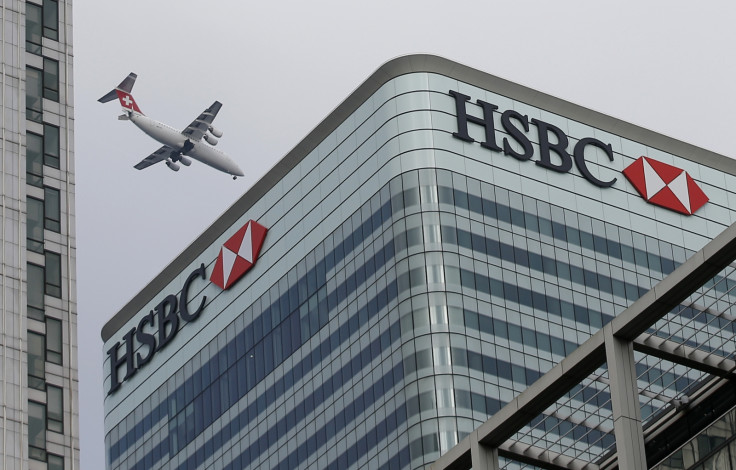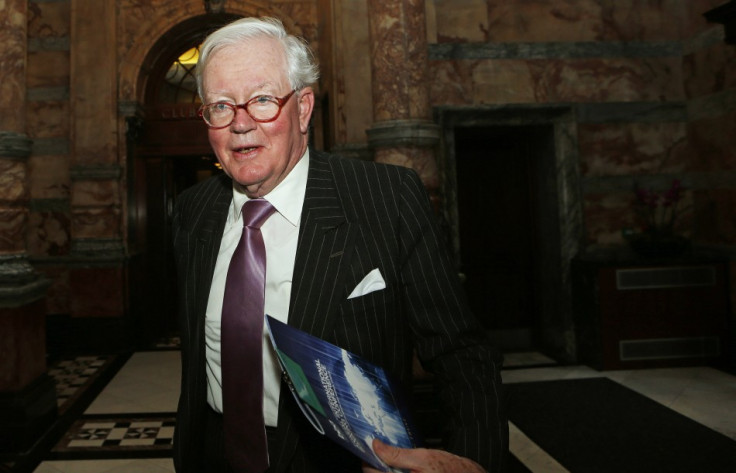Margareta Pagano: HSBC share price rises show investors hold the power not the bankers
If you want to know what's really happening at HSBC, follow the share price. That tells you everything you need to know.
After HSBC's boss, Douglas Flint, confirmed earlier in April at the annual meeting that the bank is reviewing whether to up sticks from the UK and move its headquarters – probably back to Hong Kong – the shares shot up by around 20p to 634p.

Then the shares roared again on 27 April to 649p following fresh chatter over the weekend that HSBC is also looking at selling off the retail bank for around £20bn; the bank is capitalised at £122bn.
Moving HQ or selling off its retail bank are two of the riskiest moves a bank such as HSBC could make, so it's surprising its shares are in such demand from investors. Yet they are – and the shares are still rising on the London and Hong Kong stock markets where they are listed.
HSBC's shares are now the highest they have been since September 2014, when they touched 663p; the highest price seen since May 2013 when they were at a five-year high of 758p and way, way up on the 501p they fell to in August 2011. The latter was just weeks after John Vickers, chairman of the Independent Banking Commission, announced his ring-fencing plans that require banks to separate their high-street operations from their investment banking arms by 2019.
Since then, of course, HSBC has had its own local problems: hefty fines to settle money laundering accusations, big penalties for the Libor rigging affair and the more recent allegations over helping customers avoid tax in its Swiss branch. While terrible for the bank's image and a nasty dent to the coffers, none of these scandals compare with the cost and complexity of hiving off its retail banking business as the new rules require.
Indeed, I rather think Sir Simon Robertson, the urbane non-executive director of HSBC, let the cat out of the bag when he was quoted as saying a new ring-fenced retail bank would become little more than an equity investment once the new Vickers rules kicked in because of the lack of direct control the parent bank would have over its offspring.
Ipso facto, if you can't have the balance sheet of the retail bank to play with any more, what's the point of being in the game?
Getting a reaction from investors
Robertson, a man of few words but big thoughts, went on to say: "It changes the dynamics." It certainly does; and from what I hear from those close to the HSBC bunker, the most senior executives are serious about whether there is much point to keeping the retail operation post-Vickers. The leak was a good way of testing the water; someone at the top wanted to see how investors reacted to the possibility.
Well, they got their answer loud and clear; investors understand HSBC could operate with more freedom if its domicile was in Hong Kong, where the regulations are not as tight as the UK, and that there is more value by splitting the bank into two – if not more pieces. It would need to hold less capital too.
Investors also understood HSBC's decision to review its HQ was nothing to do with the uncertainty over the UK's position with an in-out EU referendum should the Conservatives win the general election but all to do with the politics of wanting to leave the UK again after only two decades at home here.
To be fair, Flint did mention EU uncertainty as a contributing factor but bright investors don't buy this as a serious reason since in two weeks, that uncertainty should be settled by the election before the outcome of the HQ review.
Pathetic, then, for Labour's Ed Miliband to suggest Tory plans for a referendum are such a danger to business that they are all threatening to leave or that it was the catalyst for HSBC's decision.
Deutchse Bank has been struggling
With HSBC hogging the headlines, little attention has been focused on Deutchse Bank, which has had a bloody few days. It's planning to close 200 of its high-street branches by 2017, reduce its presence in some countries by up to 15% to cut €3.5bn of costs and sell its retail business, Postbank, with a stock market listing by 2016. It's also cutting investment banking activities and deleveraging its corporate banking and securities division by €200bn.
Deutsche's bosses do not have Vickers ring-fencing-type plans to cope with but they do know what investors want: a better return on capital. They claim these cost savings will increase its leverage ratio to at least 5%, offer an after-tax return on equity of more than 10% and a payout ratio to shareholders of 50% or more. They need too, quickly. Deutsche's net income has been slashed in the first quarter – by 50% to €559m because of the €2.3bn fines for manipulating libor.

So the chicken are coming home to roost, finally. This time, it's not the regulators who are punishing the banks but investors who can see the banks trading close to their book value and want to see value.
By hiving off their retail activities, both Deutsche and HSBC would see the retail arm rerated while the investment banking activities would be free to become more like a hedge fund or merchant bank-style operation.
As readers may remember, I wrote a piece in December 2014 quoting Sir Win Bischoff, former boss of Citibank and now chairman of the Financial Reporting Council, saying the world's biggest universal banks – the Too Big Too Fail banks like HSBC and Deutsche – would start breaking-up because the combination of the UK's Vickers ring-fencing rules, together with the tougher regulatory capital requirements coming into force worldwide, was forcing investors to reassess the valuations of TBTF banks.
Bischoff's argument was that investors don't see enough transparency within the big universal banks so they don't know how to model the unpredictability of earnings of investment banking activities now that we are in such a low-growth, deflationary-style environment.
He also thought it might take five years for this new unwinding to take place but so far it's taken five months for HSBC and Deutsche to start the process. Who next? Barclays, which is also reviewing its operations, is still top of my list but Credit Suisse, Santander and Unicredit can't be far behind.
Margareta Pagano is a business journalist who writes for the Independent and the Financial News. Follow her on Twitter @maggiepagano.
© Copyright IBTimes 2025. All rights reserved.






















